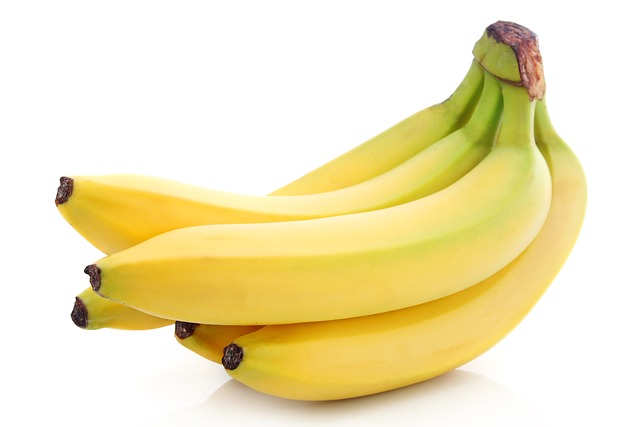Heavy metals in food have become a significant health concern, raising questions about their origins, potential risks, and strategies for avoidance and detoxification. This detailed guide explores what you need to know about metals in food, their sources, how they impact your health, and actionable tips to minimize exposure.
What Are Heavy Metals in Food?
Heavy metals in food refer to naturally occurring metallic elements that can accumulate in various food sources, often through environmental pollution or agricultural and industrial practices. While some metals, like iron and zinc, are essential for human health in small amounts, heavy metals such as lead, mercury, arsenic, and cadmium are toxic even at low concentrations. These metals are considered hazardous because they can build up in the body over time, leading to long-term health risks.
What Foods Are High in Metals?
Heavy metals, such as lead, mercury, cadmium, and arsenic, can accumulate in various foods. Some of the common food categories high in heavy metals include:
- Seafood
- Tuna, swordfish, and mackerel: High in mercury due to bioaccumulation.
- Shellfish: May contain cadmium from polluted waters.
- Grains and Rice
- Rice, particularly brown rice: Often contaminated with arsenic absorbed from water or soil during cultivation.
- Wheat and oats: May contain trace amounts of cadmium and lead.
- Fruits and Vegetables
- Leafy greens (spinach, kale): Can absorb metals like cadmium from contaminated soil.
- Root vegetables (carrots, potatoes): Draw heavy metals directly from the soil.
- Animal-Based Products
- Meat and dairy products: May contain lead and cadmium through animal feed or environmental exposure.
- Processed Foods
- Chocolate, candy, and baby food: Often contain lead or cadmium due to processing or contaminated raw materials.
Sources of Metals in Food
Metals enter the food supply chain through several routes, including:
- Contaminated Soil and Water: Industrial activities, mining, and pesticide use release heavy metals into the environment.
- Food Processing and Packaging: Metal equipment or improper storage containers can leach metals into food.
- Bioaccumulation: Fish absorb mercury, and plants uptake metals like cadmium from the soil.
- Fertilizers and Pesticides: Some fertilizers and pesticides contain trace amounts of heavy metals, which end up in crops.
Should You Worry About Heavy Metals in Food?
Long-term exposure to heavy metals in food can lead to severe health issues. While occasional ingestion of trace metals may not cause harm, consistent exposure to high levels poses risks, such as:
- Lead: Affects brain development, especially in children, and can cause I1neurological disorders.
- Mercury: Toxic to the nervous system; high levels can lead to memory loss and motor function issues.
- Arsenic: Linked to cancer, cardiovascular disease, and skin damage.
- Cadmium: Affects kidney function and weakens bones over time.
Vulnerable populations, such as children, pregnant women, and individuals with weakened immune systems, are particularly at risk.
How to Avoid Heavy Metals in Food
Minimizing exposure to heavy metals in your diet requires proactive steps. Here are some effective tips:
- Diversify Your Diet
Eating a wide variety of foods reduces the risk of heavy metal accumulation from specific sources. - Choose Organic Produce
Organic farming often avoids chemical fertilizers and pesticides, potentially reducing heavy metal contamination. - Wash and Peel Vegetables
Proper washing can remove surface contaminants, while peeling can reduce exposure from pesticides and soil residues. - Limit Consumption of High-Risk Foods
- Reduce intake of large predatory fish (e.g., tuna, shark) prone to mercury accumulation.
- Consume rice in moderation and rinse thoroughly before cooking.
- Check Packaging Materials
Opt for foods packaged in safe materials and avoid cans or containers that might leach metals. - Test Your Water Supply
Use a water filtration system if your water source is contaminated with metals.
How to Remove Heavy Metals from Food
Although it is challenging to eliminate metals entirely, certain cooking and preparation methods can help reduce their levels:
- Rinse Thoroughly:
- Washing rice and grains multiple times can reduce arsenic levels.
- Cook with Excess Water:
Cooking rice and discarding the cooking water can significantly lower metal content. - Select Safer Food Sources:
Buy food grown in uncontaminated soil and avoid items from heavily industrialized regions. - Soak Fruits and Vegetables:
Soaking leafy greens in vinegar or baking soda solutions can help reduce surface contaminants.
How to Flush Metals Out of Your Body
If you’re concerned about metal toxicity, your body’s natural detoxification system, primarily your liver and kidneys, plays a crucial role in eliminating heavy metals. You can support this process with these strategies:
- Consume Detoxifying Foods
- Leafy greens like cilantro and parsley: Help chelate (bind to) metals for excretion.
- Sulfur-rich foods like garlic and onions: Enhance liver detoxification.
- Antioxidant-rich foods: Berries and cruciferous vegetables protect cells from metal-induced damage.
- Stay Hydrated
Drinking adequate water helps kidneys flush out toxins efficiently. - Boost Mineral Intake
Essential minerals like zinc, magnesium, and calcium can compete with heavy metals, reducing absorption. - Consider Activated Charcoal or Chlorella Supplements
Activated charcoal can bind to toxins, while chlorella is a superfood that may help remove heavy metals. - Practice Regular Exercise
Sweating through exercise or saunas can help eliminate certain metals.
Should You Take Chelation Therapy?
Chelation therapy, a medical treatment where chelating agents bind to heavy metals for removal, is an option for individuals with high metal toxicity. This should only be done under medical supervision.
Conclusion
While the presence of heavy metals in food is an ongoing concern, awareness and informed choices can minimize risks. By diversifying your diet, sourcing food carefully, and incorporating detoxifying practices, you can significantly reduce exposure and maintain overall health. If you suspect high levels of heavy metal exposure, consult a healthcare professional for testing and tailored advice.



Pingback: Majority of US Baby Foods Fall Short of WHO Nutrition Guidelines, Study Reveals - Wellness Readers Digest